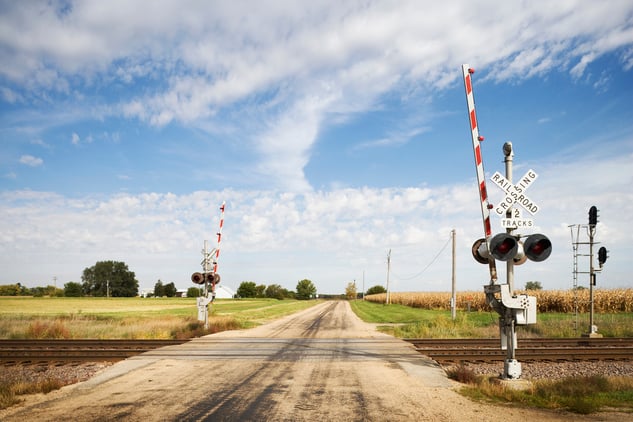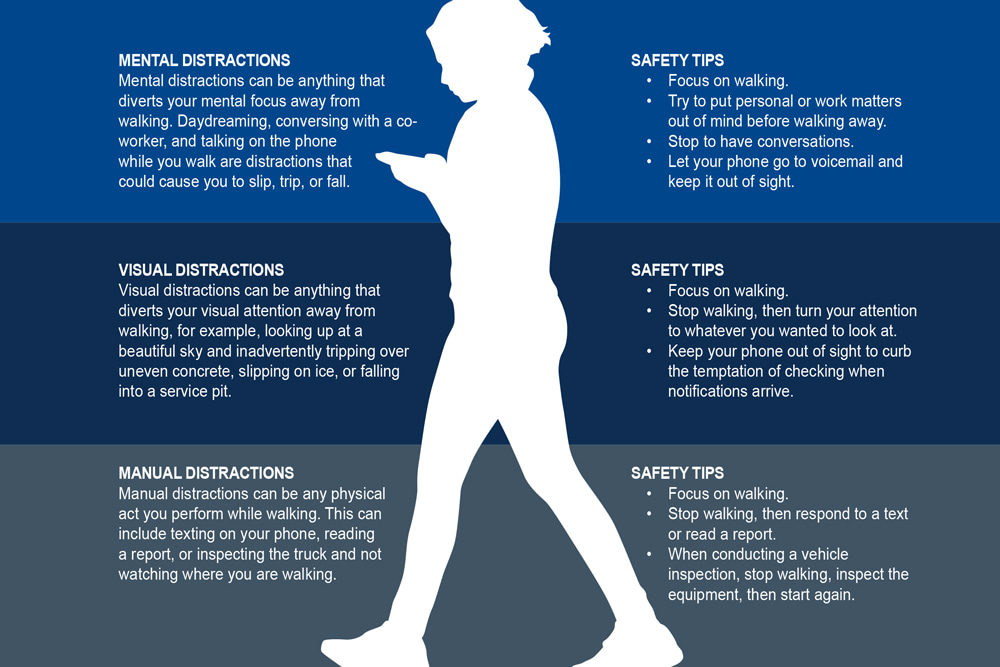Leadership Has a Role in Helping Prevent Railroad and Automobile Incidents

Railroad crossing incidents have steadily declined in the United States since the early 1980’s, according to the Federal Railroad Administration. This is great news. Efforts to decrease the number of incidents, fatalities, and injuries involving trains and vehicles or trains and pedestrians have had a positive impact, but unfortunately, preventable incidents continue to occur.
Nearly 2,000 railroad crossing incidents occurred in 2020, resulting in almost 200 fatalities and 700 injuries.1 Striving to prevent truck-train collisions at railroad crossings requires an all-hands-on-deck approach, starting with a motor carrier’s senior leaders. To aid your loss prevention efforts, here are a few risk management techniques to consider to help your company avoid a railroad crossing incident.
VALUES
Company values are established by senior leadership. Unlike priorities, which can change depending on the situation, values are beyond compromise. In the case of preventing railroad crossing incidents, engage drivers and operations staff in dialogue and emphasize the importance of this company value. Support initiatives to raise awareness and lead efforts to evaluate operations to minimize the risk of truck-train collisions.
TRAINING
Good decision making is a key factor to helping prevent a railroad crossing incident. In the heat of the moment, when your driver is facing this hazard, he or she must make a fateful decision how to react. From deciding how to approach a set of railroad tracks to actually crossing without incident, motor carriers must trust that the driver will act in a safe manner. One way to decrease the risk of an incident is training. Reinforce safe driving techniques with drivers so they react to hazards and make proper decisions when behind the wheel.
INVESTIGATIONS
Investigate all incidents involving a railroad crossing, including truck-train collisions and near misses. Due to the potential for catastrophic losses, motor carriers should seek the advice of legal counsel before starting an investigation. Remember, the goal of any investigation is not to cast blame or punish those responsible, but to find the root causes of the incident and take corrective actions to help prevent the incident from happening again.
For more information on railroad crossing safety, refer to Federal Motor Carrier Safety Administration regulations and organizations like Operation Lifesaver®, which provides railroad crossing safety materials to help motor carriers prevent truck-train collisions.
CALL TO ACTION
-
Define the company values regarding preventable incidents.
-
Require that all employees in safety-sensitive functions receive training on railroad crossings.
-
Consult legal counsel before conducting a vehicle-related incident investigation.
-
Partner with groups like Operation Lifesaver® to raise awareness about railroad crossing safety.
The information in this article is provided as a courtesy of Great West Casualty Company and is part of the Value-Driven® Company program. Value-Driven Company was created to help educate and inform insureds so they can make better decisions, build a culture that values safety, and manage risk more effectively. To see what additional resources Great West Casualty Company can provide for its insureds, please contact your safety representative, or click below to find an agent.
© Great West Casualty Company 2022. The material in this publication is the property of Great West Casualty Company unless otherwise noted and may not be reproduced without its written consent by any person other than a current insured of Great West Casualty Company for business purposes. Insured should attribute use as follows: “© Great West Casualty Company 2022. Used with permission by Great West Casualty Company.”
This material is intended to be a broad overview of the subject matter and is provided for informational purposes only. Great West Casualty Company does not provide legal advice to its insureds, nor does it advise insureds on employment-related issues. Therefore, the subject matter is not intended to serve as legal or employment advice for any issue(s) that may arise in the operations of its insureds. Legal advice should always be sought from the insured’s legal counsel. Great West Casualty Company shall have neither liability nor responsibility to any person or entity with respect to any loss, action, or inaction alleged to be caused directly or indirectly as a result of the information contained herein.




